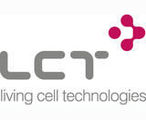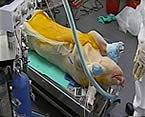Ian Kent was the founder of Imutran, one of the first developed Xenotransplantation companies regarding Xenotransplantation. Xenotransplantation have many companies within the industry that contribute a major amount of research and development for the procedure. Some of the companies are Imutran, Nextran, Alexion, and BioTransplant. Into the 21st century were a number of technological advances that allowed Xenotransplantation to thrive into a growing industry. A large Swiss pharmaceutical, Novartis, merged with the first Xenotransplantation company, Imutran to for a new company called Immerge BioTherapeutics. Imutran was a small biotechnology company in England that started in 1992. In December of that year they created “Astrid” which was the first pig in the world to carry human genes within its organs so that the pigs immune system would not reject the transplanted organ. Some years later, Imutran came forward with an announcement of many productions of the “Astrid” trials that would be eligible for human trials as early as 1996. In 2001, Imutran became Immerge BioTherapeutics. Nextron was founded in Albany, Alexion was formed in 1992 by innovators who were trying to solved rejection for the receivers of the Xenotransplanted organs. They strictly focused on creating organs from pigs to humans. One of their most impressive foundations was the implantation of pigs nerve cells into humans spinal cords to repair damage done to the spinal cord. Immerge Biotherapeutics was developed in 2001 that was mainly focused on the development of cells, tissues, and organs that were to be used in Xenotransplantation. Living Cell Technology(LCT), a New Zealand company which is developing a way to use insulin-producing cells from pigs to treat diabetes in humans, says it now plans to expand across the Tasman in Australia. According to Chief Dr. Paul Tan “This decision opens up significant opportunities not only for LCT but for the wider medical science community and people with life-threatening disease.” LCT is the only company in the world now conducting phase two Xenotransplantation trials in people with type one diabetes, and DR Tan said this research would be expanded to patients in Australia once a new regulatory framework, required by the National Health and Medical Research Council was in place. Many people within Australia and New Zealand have different views on the use of Xenotransplantation and there are many controversies that arise because of the research being done. Australia is still quite behind in completely finishing a product to use in medicine but within five years scientist say that they should become very close to finally developing a product. The only problem is the community that surrounds them and their view on the whole situation. The rejection issues regarding Xenotransplantation can be overcome such as animals like the pig could provide a solution to the world’s large demand for replacement human organs. “The first big area for clinical trials is diabetes then we would look towards solid organ transplants-kidneys first, probably, then possible liver, “said by a Melbourne-based Professor Tony d’Apice, who was president of the International Xenotransplantation Association from 2003 to 2005.
 |
   
Dr. Laurencin is University Professor, the Lillian T. Pratt Distinguished Professor, and Chair, Department of Orthopedic Surgery, The University of Virginia, Charlottesville, VA. Dr. El-Amin is Orthopedic Surgery, The University of Virginia. All these scientists agree to define Xenotransplantation as including any procedure that involves the transplantation, implantation, or infusion into a human recipient of cells, tissues, or organs for a nonhuman animal source or of human body fluids, cells, tissues, or organs that have had contact with nonhuman animal cells, tissues, or organs. The current FDA definition of Xenotransplantation relates to procedures involving live, nonhuman materials. The proposed use of Xenotransplanted tissues for a treatment of a wide variety on human disease is increasing. In orthopedic surgery, a number of Xeno-based products for treatment of musculoskeletal conditions have been cleared by the FDA. Commercially available products include those used as alternatives for bone, cartilage, and soft-tissue repair. Studies internationally have demonstrated a low relative risk of disease transmission, although there is concern regarding the potential for transmission into humans of agents not considered pathogenic or not detected in animals. |